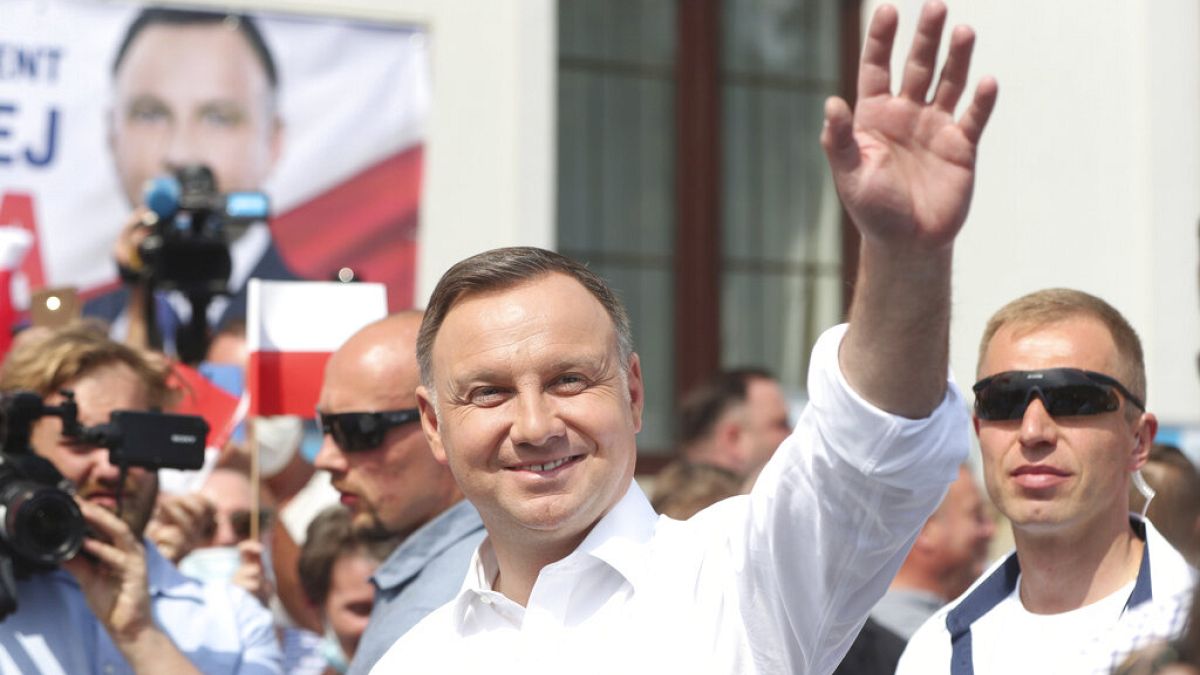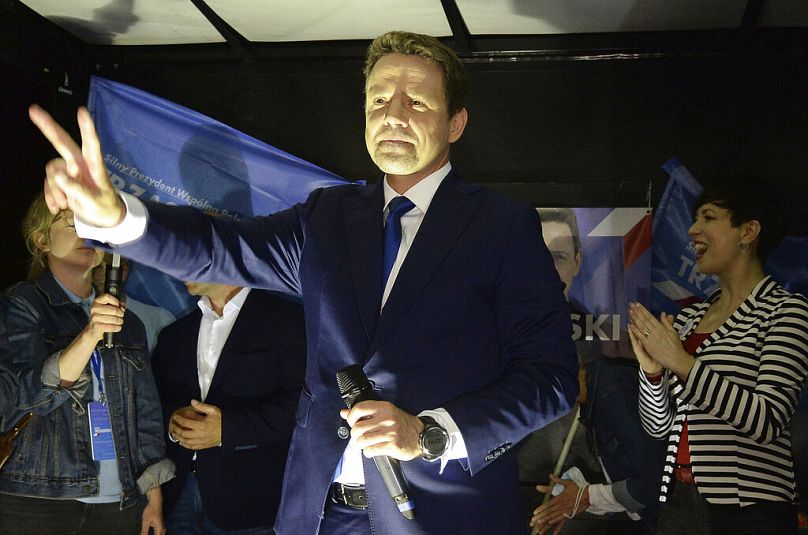Support for Andrzej Duda, who is running for a second term as Poland's president, has fallen in recent weeks.
Roman Pieńkowski, is an affable, colourful character, who is a bit of celebrity with his neighbours.
Why? Well, his shop in central Warsaw has been selling some of the city’s most delightful flowers for the best part of 100 years. The shop has survived World War II and the Communist era but the recent coronavirus lockdown has been the biggest challenge yet.
“In March it was catastrophic, my income was 200-300 zloty a day,” he told me. “It didn’t pay my rent, I was about to close down the shop, I’ll now have to wait and see what happens.”
Thankfully, he did reopen and after a Facebook appeal, his loyal customers soon started forming queues outside.
But, for all the businesses that did reopen, many simply have not. Poland is staring at its first recession in 30 years. In fact, it is the only country in the EU not to see a quarter of negative growth since 1992.
And so it’s not a surprise that the economy is the number one concern among voters heading to the polls this Sunday, but it is far from the only one. Health comes in second, according to a recent poll. With global warming and drought also featuring prominently.
Officially, there are 11 candidates battling it out in the first round of this presidential election, but this has essentially turned into a two-horse race: between the incumbent Andrzej Duda and the Mayor of Warsaw, Rafał Trzaskowski. Neither is likely to get over 50 per cent in the first round, meaning a run-off in mid-July - with current polls suggesting it’s too close to call.
What a contrast to a couple of months ago when Duda was riding high in the polls and looked like he was going to win in that first round. That was until the initial vote was postponed during the pandemic. Since then, support for him has slipped and his opponents have gained ground.
“You can see that President Duda is nervous. As an incumbent president, he would have expected to win with a totally different set of circumstances,” said Wojciech Przybylsk, Editor-in-Chief of Visegrad Insight. “So, today Andrzej Duda is looking backwards. And you can see it in every move he makes and in every communication from him that he is very much anchored in the past success, in the past achievements of him and his camp and he doesn’t look very much to the future and he doesn’t offer the message of hope and change he used to represent in previous elections.”
Duda, is not a member of a political party - he can’t be as president - but he was a member of the Law and Justice Party, which is currently in government. They have repeatedly clashed with Brussels over judicial reform and media independence. They have also aligned themselves politically to President Donald Trump, with Duda making a surprise and controversial trip to The White House this week in a hope of boosting his support. It was the two leaders' 11th meeting as presidents.
It is a strategy that has angered the opposition. Dariusz Rosati, Poland’s former foreign minister, told me the country has to pursue a twin strategy. “We have to continue to have relations with both the European Union and the US. Our security is based on two pillars, NATO and the European Union and this government has been engaged in a one-sided policy which is very dangerous always. If you want to stand on one leg this is not a very stable position,” he told Euronews.
Controversy has also stalked the president, with comments made on the campaign trail earlier this month, in which he claimed the LGBT+ movement advanced ideas that are "more harmful than communism" and, when asked, said he agreed with another conservative politician who stated that “LGBT is not people, it's an ideology.” That was roundly condemned by opponents and doesn’t seem to have worked politically, even with more conservative voters.
Sunday’s vote is unlikely to provide a final result; Poles will almost certainly have another chance in a few weeks time, in what is proving to be their closest election yet - since the fall of communism here, three decades ago.
Darren McCaffrey is Euronews' Political Editor.

